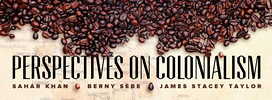Lead Essay
Sahar Khan argues that classical liberal and libertarian political commitments weigh heavily against the supposed case for colonialism. No matter what affinity we may have for startup societies, colonialism as a historical phenomenon was a gross violation of individual rights. From mercantilism to outright genocide, the various aspects of the colonial project are not worth emulating or reconstructing in the modern world. Rather, we should re-emphasize the case against military intervention abroad in all its forms.
Response Essays
Berny Sèbe reviews a few of the key points of the ongoing historical debate about colonialism, from Bartolomé de las Casas through Frantz Fanon. The intellectual case for colonialism has never been strong, he concludes, but there is yet another reason to reject colonialist ideology today: It would be impossible to replicate institutions that were the products of historical conditions we no longer experience. Colonialism is best left in the past for this and a host of other reasons.
James Stacey Taylor disagrees with Sahar Khan on only one point - foreign rule, he says, can sometimes be legitimate, though he stresses that in practice it almost never is. He then explains what was really wrong with Bruce Gilley’s case for colonialism - not that it gave offense, but that it misused sources. He cites several examples of sources whose words and actions do not bear out the claims that were made of them, including Michael Hechter, Jan Henryk Pierskalla, and Patrice Lumumba - who was Congo’s first president and a staunch anti-colonialist.
The Conversation
Related at Cato
Essays by Berny Sèbe and James Stacey Taylor. Conversation to continue throughout the month.

